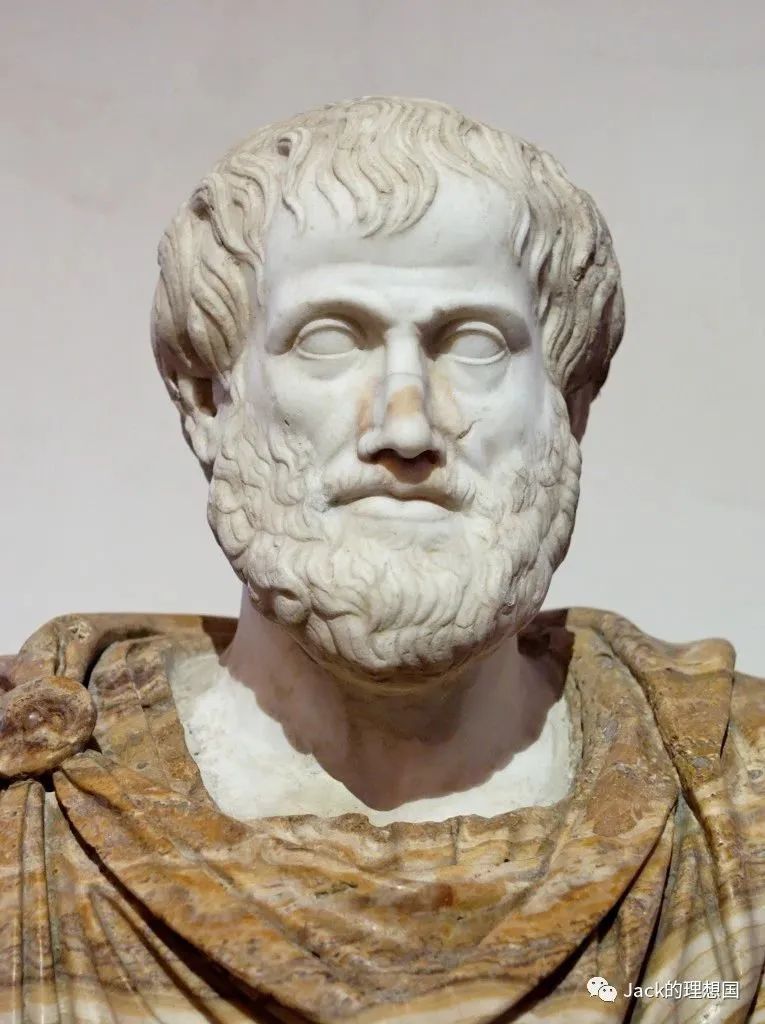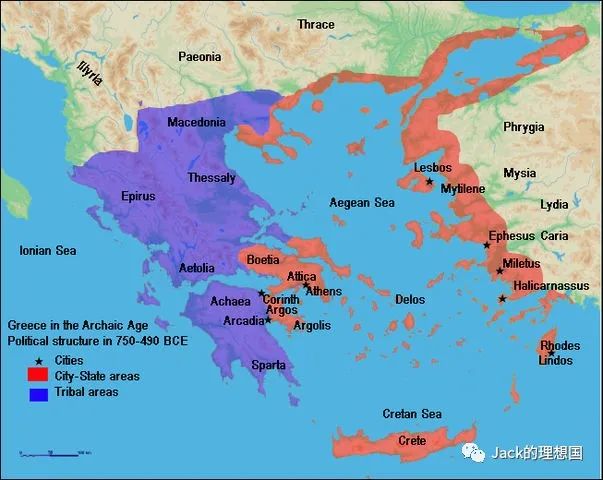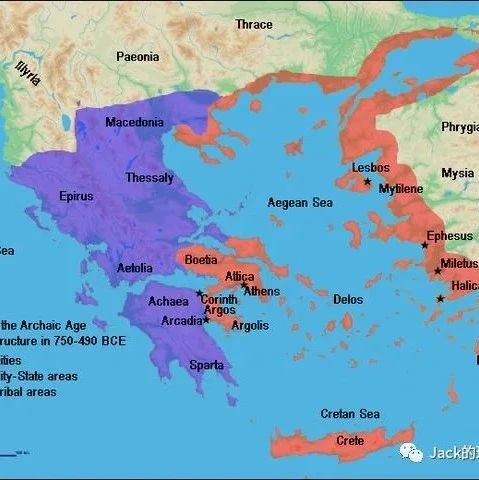My Heroes 3 - Aristotle 我的英雄3 - 亚里士多德

Introduction
The Classical Greek Period spanning from around 500 to 336 BCE witnessed the rise of accomplished intellectuals in different fields. In the realm of philosophy, there were Socrates, Plato and their many students; in the realm of drama, Sophocles, Euripides, Aristophanes were the pioneers in tragedy, comedy, plays that displayed profound implications; in the realm of science, Hippocrates can be well-regarded as one of the most significant innovators in medicine, while Democritus was the first to hypothesize the existence of atoms. However, although these brilliant philosophers, artists and scientist made their distinctive marks in history, their lives in academia were unparallel to the one Aristotle led. He defined a true polymath and intellectual. He was a philosopher, a politician, an economist, a zoologist, a paleontologist, a historian, a sociologist, a scientist, a mathematician, an educator, a public figure and so much more.
A Quick Biography
Aristotle was born in 384 BCE on the Chalcidic Peninsula of Macedonia, in northern Greece. He was born into a medical family. Aristotle’s father, Nicomachus, was the physician of Amyntas III (reigned c. 393-c. 370 BCE), king of Macedonia and the grandfather of Alexander the Great. Aristotle spent most of his early years with his father in Macedonia until his father’s death in 367 BCE. That year, the 17-year-old Aristotle moved to Athens, the center of classical Greek culture, and joined the Academy of Plato. He remained there for 20 years as Plato’s pupil and colleague.
When Plato passed away in 348 BCE, Aristotle decided to travel around the Mediterranean and
Asia Minor, visiting cities such as Assos on the northwestern coast of Anatolia or the island of Lesbos. During this time of extensive travelling, Aristotle completed some of his scientific work, including The History of Animals and On the Parts of Animals. Around 343 BCE, King Phillip II invited Aristotle back to his birthplace to become Alexander the Great’s private tutor. Following the assassination of Phillip II in 336 BCE, Aristotle returned to Athens to open the Lyceum. The Lyceum was a school that gathered a group of brilliant research students to discuss philosophy, science, and politics. Aristotle also gave many free lectures on these subjects to the wider public.
In 323 BCE, Alexander the Great passed away. When the news reached Athens, the faction that opposed the Macedonians suddenly gained much power. Aristotle, due to his close links to Macedonia, began to face purges on the same charges that Socrates received almost 80 years before. He was accused of impiety against the Greek deities and the corruption of the Athenian youth. Determined to not let the Athenians offend philosophy again, Aristotle decided to retreat to the island of Chalcis, where he spent his final two years of life.
Aristotle vs. Plato
Aristotle was Plato’s student, having studied in his teacher’s Academy for 20 years. However, Aristotle developed a different set of methodologies to approach real life problems or philosophical thoughts. He was more “on the ground” with his theories and explanations. If Plato was the thinker that imagined what a utopia would look like, Aristotle would be the experimenter who aimed to realize Plato’s visions.
The central theme in Plato’s The Republic concerns the concept of “justice”. In the latter half of the book, Plato laid out the necessary components of a state that would be just, including the rule by a philosopher king, the achievement of equality between men and women, and a well-rounded education that would produce future leaders. Although most of his political visions were lofty and pioneering, Plato was unable to genuinely explore the possibilities of realizing his utopia within a realistic setting.
Aristotle took Plato’s ideas and transformed them to actual knowledge that Greek leaders during that time could reference. Aristotle started out by investigating the history of politics. One of the most famous quotes in his book The Politics is “man is a political animal”. Here, “politics” is not quite referring to the fight for power or dominion over others that one usually associates with the word. Instead, it generally points to the claim that man is a gregarious animal by nature. Man can use “logos” or logic to discern good from evil and justice from injustice. People congregated into ordered city-states to prevent citizens from deteriorating back into avaricious and lawless beasts. Thus, the central question in politics regards the ways in which politicians can allow citizens to utilize “logos” to make justified choices.
From this central question onwards, Aristotle further clarified what groups should be eligible for politics. He refined Plato’s argument that only philosopher kings should rule. Aristotle wrote that only those free citizens who own physical property can take part in the government. Farmers, craftspeople, merchants and slaves would spend all their day working and would not have the leisure time to study the workings of the government. Hence, these groups should not pass the benchmark for political activity. Only free civilians would possess the spare time and effort to receive decent education, honing their intellect for politics. Aristotle argued for the importance of “leisure” to a citizen fulfilling their basic political responsibilities, thus contributing to future governments’ ideas on the rights of their civilians.
Aristotle as a Polymath
Aside from political philosophy, Aristotle was a true polymath. He contributed so much to the sciences. In the field of astronomy, for example, Aristotle was one of the first to scientifically theorize that the Earth is round, not flat. He based his claim on the observations that ships vanish as they sail to the horizon and that one can see different stars as they travel to different places. Together with Democritus, Aristotle argued that the regardless of the number of times a scientist cuts a form of matter, they would always end up with a smaller piece of that matter. He was the first to propose the existence of an ultimate particle which later became the basis of the theories on atoms.
Aristotle was also a prolific writer in philosophy. In his book Nicomachean Ethics, Aristotle thoughtfully probed into human nature. He began the work by positing that there exists some ultimate good which all humans aim to achieve. The book further discusses the concepts of “virtue” and “happiness” and the impediments people face to obtaining these values. Although this book was dedicated to political science, it still contains the heart of Aristotle’s philosophy, which essentially seeks to identify the best way of life.
In the field of literature, Aristotle offered an account of poetry in his work Poetics. It is the earliest surviving work of Greek dramatic theory and one of the first pieces of writing to delve into literary theory. This book additionally contains some records of literature history, further revealing Aristotle’s identity as a historian.
What Environment Shaped a Polymath Like Aristotle?

After the Peloponnesian War ended in 404 BCE, Greece entered a period of uncertainty and relative chaos. In Athens, the Spartans set up an oligarchy known as the Thirty. But its regime was short-lived, and the Athenians eventually restored their democracy. The war severely battered the three powerhouses of Greece – Athens, Sparta, Thebes. They entered a period of decline during the 4th century BCE when there was no clear dominating power.
Aristotle was born into such an age of transition in history. The surrounding environment endowed Aristotle with several beneficial conditions. First, he had the chance to freely go around Greece and the larger Mediterranean region. When there is a dominant political power in control of a large area, it would often be an obstacle for scholars like Aristotle to freely move around, as they have to be careful with politics. However, the lack of a dominant power freed the Mediterranean and Asia Minor region of political hegemony, hence granting Aristotle the freedom he needed without being overburdened by political views or persecution. The freedom to travel around further allowed Aristotle to visit various cultures, investigate multiple pieces of evidence to help him establish scientific theories, and build his polymath character effectively.
Greek culture at that time additionally permitted relative freedom of exploration and expression. Some city-states, especially the democratic ones such as Athens, directly promoted the spirit of freedom and exploration into the unknown. This environment partially explains why Aristotle chose to open the Lyceum in Athens. Even in city-states that did not uphold democracy or widespread freedom, the 4th century BCE was still a ripe time for creations and novel thoughts to emerge. The lack of a dominating central authority prodded people from all over the region to gather and discuss their opinions and findings. Such a loose environment would be to Aristotle’s benefit a lot, since he would have the opportunities to voice his thoughts or communicate with other fellow scholars.
Finally, the uncertain and chaotic nature of the 4th century BCE could very well facilitate Aristotle’s quest into undiscovered realms. In such a period, society would usually be filled with intellectuals who are seeking solutions to the dilemmas. For example, there was a burst of philosophy and new thoughts during the Spring and Autumn era of Chinese history because it was a time of constant mayhem and instability. Confucius and the other philosophers came up with groundbreaking ideas on social structure and politics, as they were driven by a will to fix the situation. Similarly, the fact that Aristotle’s ideas were more explorative and on-the-ground can be associated with the general aim of them to solve real-world issues. Without the facilitation of the environment, it would be difficult to Aristotle to come up with such realistic and pioneering observations and contemplations.
Conclusion
Overall, Aristotle was one of the most impactful polymaths in western history who was born into a favorable atmosphere for intellectual growth and lived a life of exploration and research. It is worth thinking about why the modern world has not yet witnessed the birth of any Aristotle-like figure. While modern societies do provide more ways to explore and express, the “white paper” is getting increasingly “filled up”. Aristotle could push forward great progress in so many different fields because the world back then faced countless unknown areas. Today, we are hitting the limits of our current knowledge in many fields and are struggling to innovate. This situation results in involution and rising levels of pressure within a society, which further discourages people to think boldly and creatively. The next Aristotle would only arrive if we possess a “simple” mindset, rethink our potentials as a race and always look to the endless future.
WORKS CITED
“Ancient Greek Civilization - Greek Civilization in the 4th Century | Britannica.” Encyclopædia Britannica, 2023, www.britannica.com/place/ancient-Greece/Greek-civilization-in-the-4th-century. Accessed 12 Jan. 2023.
“Aristotle | Biography, Works, Quotes, Philosophy, Ethics, & Facts | Britannica.” Encyclopædia Britannica, 2023, www.britannica.com/biography/Aristotle. Accessed 12 Jan. 2023.
Miller, Fred. “Aristotle’s Political Theory (Stanford Encyclopedia of Philosophy).” Stanford.edu, 2022, plato.stanford.edu/entries/aristotle-politics/. Accessed 12 Jan. 2023.
PICTURES CITED
https://www.worldhistory.org/image/1259/aristotle-bust-by-lisippo/
https://courses.lumenlearning.com/suny-hccc-worldhistory/chapter/sparta/
简介
公元前500年到公元前336年的古典希腊时期见证了智者时代的辉煌。在哲学领域,有苏格拉底、柏拉图和他们的许多学生;在戏剧领域,索福克勒斯、欧里庇得斯、阿里斯托芬是悲剧、喜剧的先驱,他们的戏剧开拓性地展示出人类文学创造的深刻意义;在科学领域,希波克拉底可以被誉为历史上医学领域最重要的创新者之一,而德谟克利特是第一个假设原子存在的人。然而,尽管这些杰出的哲学家、艺术家和科学家在历史上留下了他们独特的印记,但他们在学术界仍很难与亚里士多德相提并论。亚里士多德定义了一个真正的全才与知识分子,他是一位哲学家、政治家、经济学家、动物学家、古生物学家、历史学家、社会学家、科学家、数学家、教育家,更是一位有影响力的公众人物。
简略传记
亚里士多德于公元前384年出生在希腊北部马其顿的Chalcidic半岛。他出生在一个医学家庭,父亲尼科马库斯是马其顿国王艾米塔斯三世(约公元前393-370年在位,他是亚历山大大帝的祖父)的医生。亚里士多德早年大部分时间与父亲在马其顿度过,直到公元前367年他父亲去世。这一年,17岁的亚里士多德搬到了希腊古典文化的中心--雅典,并加入了柏拉图的学院。他作为柏拉图的学生和同事在那里生活了20年。
公元前348年,柏拉图去世后,亚里士多德决定环游地中海和小亚细亚。一路上,他访问了安纳托利亚西北海岸的阿索斯或莱斯波斯岛等城市。在这段广泛旅行的时间里,亚里士多德完成了他的一些科学著作,包括《动物史》和《论动物的各个部分》。大约在公元前343年,国王菲利二世邀请亚里士多德回到马其顿,成为亚历山大大帝的私人教师。公元前336年菲利二世被暗杀后,亚里士多德回到雅典开办了吕库古学院(The Lyceum)。吕库古是一所研究校,聚集了一批优秀的为了研究目的而来的学生,讨论哲学、科学和政治。亚里士多德还就这些主题向广大公众进行了许多公开演讲。
公元前323年,亚历山大大帝去世。当这个消息传到雅典时,城内反马其顿势力获得了更多实权。亚里士多德由于与马其顿的密切联系,开始面临被清算的命运,其被指控的罪名与苏格拉底在近80年前收到的相同,即不敬神。亚里士多德决心不让雅典人再次冒犯哲学,决定撤退到Chalcis岛,在那里度过他生命中的最后两年。
亚里士多德与柏拉图
亚里士多德是柏拉图的学生,曾在他老师的学院学习了20年。然而,亚里士多德开发了一套不同的方法论来处理现实生活中的问题或哲学思想。他的理论和解释更加 "脚踏实地"。如果说柏拉图大胆构想了乌托邦的样貌,那亚里士多德则是旨在实现柏拉图政治愿景的现实实验者与领导者。
柏拉图《理想国》的中心主题涉及 "正义 "的概念。在该书的后半部分,柏拉图提出了一个公正国家的必要组成部分,包括哲人王统治、男女平等以及能够培养未来领导人的全方位教育。尽管柏拉图的大多数政治愿景都是崇高的和开创性的,但他未必真正探讨在现实环境中实现其乌托邦的可能性。
亚里士多德采纳了柏拉图的想法,并将其转化为当时各地政治领袖可以参考的实际知识与建议。亚里士多德以政治历史为其理论的开端。他的《政治学》一书中最著名的一句话是 "人是一种政治动物"。在这里,"政治 "并不完全是指人们通常与这个词联系在一起的争权夺利或对他人的残暴统治。相反,“政治”一词指出,人在本质上是一种群体性社会动物,并可以用 "理性 "或逻辑来辨别善与恶、正义与不义。人们聚集在有秩序法律的城邦中是为了防止公民退化成贪婪和无法无天的野兽。因此,政治学的核心问题是政治家如何让公民利用 "逻辑 "来做出合理的选择,约束人性本身的恶。
从这个核心问题开始,亚里士多德进一步明确了哪些群体应该有资格参与政治。他细化了柏拉图“哲人王统治”的论点。亚里士多德写道,只有那些拥有实体财产的自由公民才能参与政府。农民、手工业者、商人和奴隶会整天工作,很难拥有闲暇时间研究政府的运作,关注政治活动。因此,这些群体不应该拥有参与政治活动的权利。只有自由的公民才有闲暇时间和精力去接受全面的教育,为政治磨练自己的智力。亚里士多德论证了“闲暇”对于一个公民履行其基本政治责任的关键性,为后世政府对于公民权利的保证提出突破性贡献。
亚里士多德作为一名“全才”
除了政治哲学之外,亚里士多德更是一位真正的全才。他对科学的贡献非常显著。例如,在天文学领域,亚里士多德最早使用科学的论证证明地球是圆的而不是方的。他的主张基于这些观察:一,船在驶向地平线时会消失,二,人们到不同地方时可以看到不同的星群。亚里士多德和德谟克利特同时一并提出,无论人对某种形式的物质进行多少次切割,他们最终总会得到这个物质的更小一块。基于此,这两位成为第一个提出“终极粒子”存在的人,这后来正是原子理论的基础。
亚里士多德也是一位多产的哲学作家。在他的《尼各马可伦理学》一书中,亚里士多德深思熟虑地探究了人性。他在作品中创新性地提出,所有人都旨在实现一种终极的善。该书进一步讨论了 "美德 "和 "幸福 "的概念,以及人们在获得这些价值时所面临的障碍。虽然这本书实际献给了政治学,但它仍然包含了亚里士多德哲学观的核心内容,其本质是寻求最正确,最符合自然的生活方式。
在文学领域,亚里士多德在其作品《诗学》中对各类诗歌进行了分析。它是现存最早的记录希腊戏剧理论的著作,也是最早深入研究文学理论的书籍之一。这本书还包含一些文学史的记录,进一步揭示了亚里士多德作为历史学家的全能身份。
什么环境能够塑造亚里士多德这样的“全才”?

(一张展示公元前500年左右希腊与部分地中海地区的地图)
伯罗奔尼撒战争在公元前404年结束后,希腊进入了一个不确定和相对混乱的时期。在雅典,斯巴达人建立了一个被称为“三十僭主”的寡头政权,但其政权是短暂的,雅典人最终恢复了他们的民主。这场战争严重打击了希腊的三个灯塔般的城邦--雅典、斯巴达、底比斯。在公元前4世纪,它们进入了一个衰落期,当时没有任何一方拥有支配性力量。
亚里士多德就出生在这样一个历史的过渡时代。周围的环境赋予了亚里士多德几个有利条件。首先,他有机会自由穿梭于希腊和更大的地中海地区。当有一个主导的政治势力控制着大片地区时,像亚里士多德这样的学者要想自由地走动是较为困难的,往往会面临多重障碍,因为他们必须对政治小心翼翼。然而,由于没有主导势力,地中海和小亚细亚地区摆脱了政治霸权,给予了亚里士多德所需的自由,而没有受到政治观点迫害的过度负担。到处游走的自由进一步使亚里士多德能够访问各种文化,调查多种证据以帮助他建立科学理论,并有效地搭建其多面手特点。
当时的希腊文化还允许相对自由的探索与表达。一些城邦,特别是像雅典这样的民主城邦,直接提倡自由和探索未知的精神。这种环境部分地解释了为什么亚里士多德选择在雅典开设吕库古学院。即使在那些没有坚持民主或广泛自由的城邦,公元前4世纪仍然是一个创造和新思想出现的成熟时期。缺乏一个有统治力的中央政权,促使来自各地的人们聚集在一起,讨论他们的意见和发现。这样一个宽松的环境对亚里士多德有很多好处,因为他有机会表达自己的想法或与其他学者同行交流。
最后,公元前4世纪的不确定性和混乱性很可能促进亚里士多德对未发现的领域的探索。在这样一个时期,社会上通常会有很多知识分子在寻求解决困境的方法。例如,在中国历史上的春秋时代,就出现了哲学和新思想的迸发,那是一个不断发生混乱和不稳定的时代。孔子和其他哲学家们在社会结构和政治方面提出了开创性的想法,因为他们是在修复局势的意志驱动下提出的。同样,亚里士多德的思想更具有探索性和实践性,这可以与他们解决现实世界问题的总体目标联系起来。如果没有环境的促进,亚里士多德就很难提出这种现实的、开创性的观察和思考。
结论
总的来说,亚里士多德是西方历史上最有影响力的多面学者之一,他出生在一个有利于生长智慧的环境中,一生都在探索和研究。值得思考的是,为什么现代世界再没有见证任何类似亚里士多德的人物诞生?虽然现代社会确实提供了更多的探索和表达方式,但 "白纸 "却越来越被 "填满 "了。亚里士多德能够在这么多不同的领域推动巨大的进步,是因为当时的世界面临着无数的未知领域。今天,我们在许多领域都遇到了我们现有知识的极限,创新变得愈发艰难。这种情况导致了社会内部的内卷化和压力水平的上升,进一步打击了人们大胆和创造性思考的积极性。只有当我们重新回到“天真”状态,思考人类作为一个种族的潜力并始终着眼于长远未来时,下一个亚里士多德才可能会出现。
- 本文标签: 原创
- 本文链接: http://www.jack-utopia.cn//article/595
- 版权声明: 本文由Jack原创发布,转载请遵循《署名-非商业性使用-相同方式共享 4.0 国际 (CC BY-NC-SA 4.0)》许可协议授权










